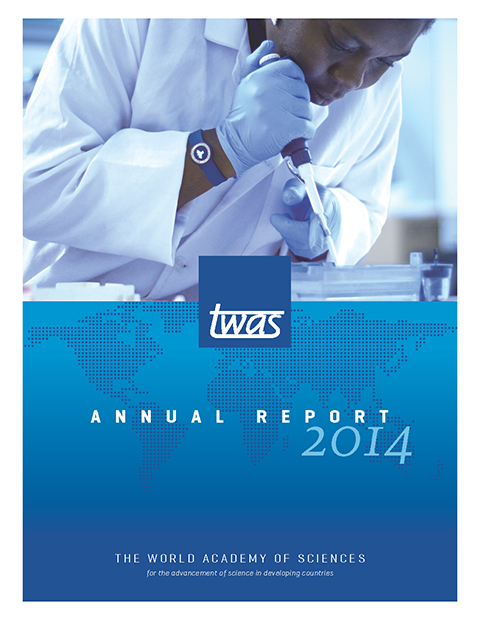 The year 2014 was a milestone in many ways for TWAS. From its general meeting in Oman, to a new landmark agreement with India’s top science agency for new fellowships, to the debut of a dynamic new web site, the Academy became more well-positioned than ever to advance science in the developing world.
The year 2014 was a milestone in many ways for TWAS. From its general meeting in Oman, to a new landmark agreement with India’s top science agency for new fellowships, to the debut of a dynamic new web site, the Academy became more well-positioned than ever to advance science in the developing world.
And TWAS’s progress is reflected in a redesigned annual report, which uses a new array of colorful graphics, charts and maps to show the Academy’s 2014 work and impact. Readers can now see the full breadth and reach of TWAS’s many programmes, which provided 115 research grants, offered over 500 PhD and postdoctoral fellowships and created 40 new PhDs for developing world researchers in 2014 alone.
Download the full 2014 TWAS Annual Report.
“Today, we can say that with clear vision and hard work, and with many partners around the world, we have contributed to a historical global shift,” said TWAS President Bai Chunli in his opening letter to readers. “We see the progress in countries that are becoming stronger through investments in research and science education – countries as diverse as Malaysia and Mexico, Rwanda and Brazil, India, South Africa and my own country, China.”
The annual report details further facets of TWAS’s work, such as its growing membership and the many awards and programmes oriented toward developing scientific expertise in the South. It also explores the Academy’s efforts to support women in science, advance science diplomacy and expand the growing connections between science academies world wide.

